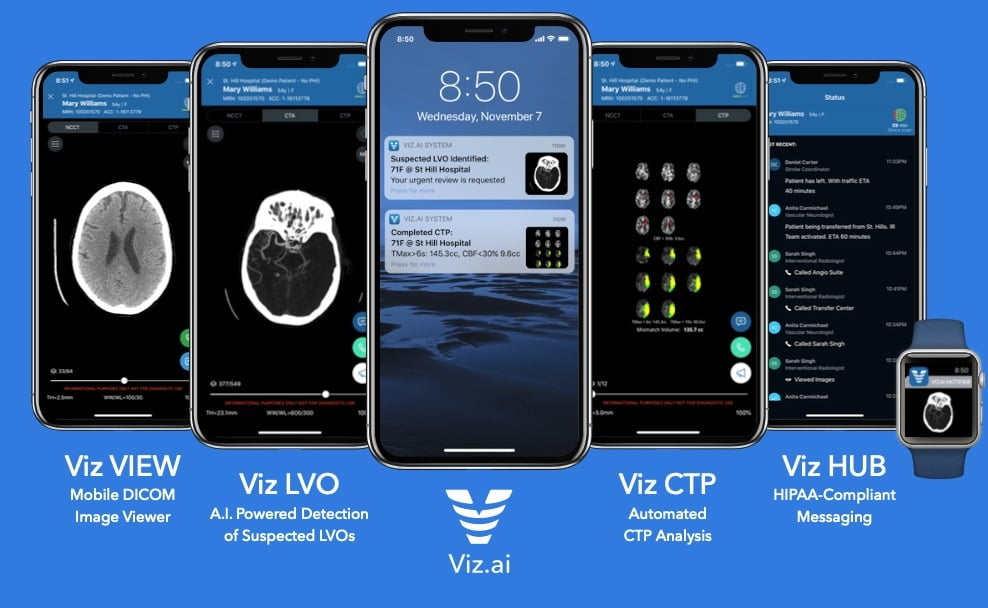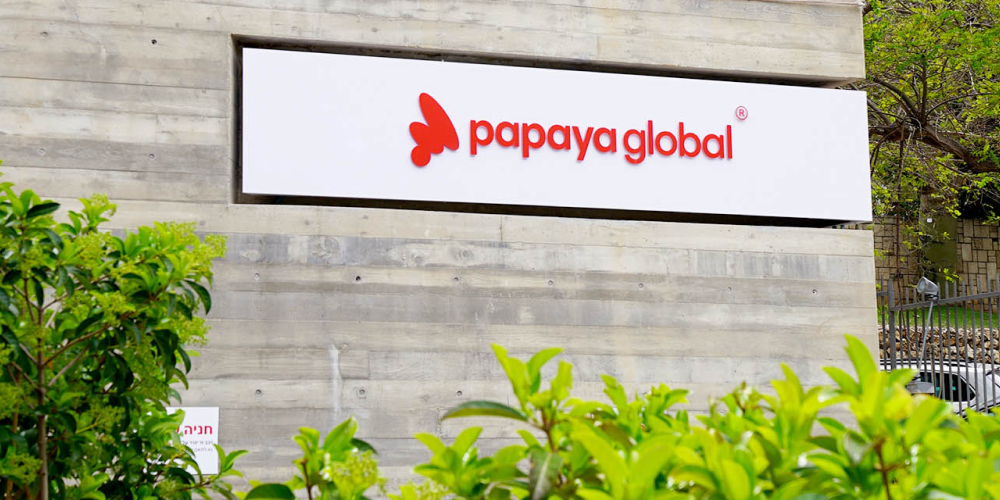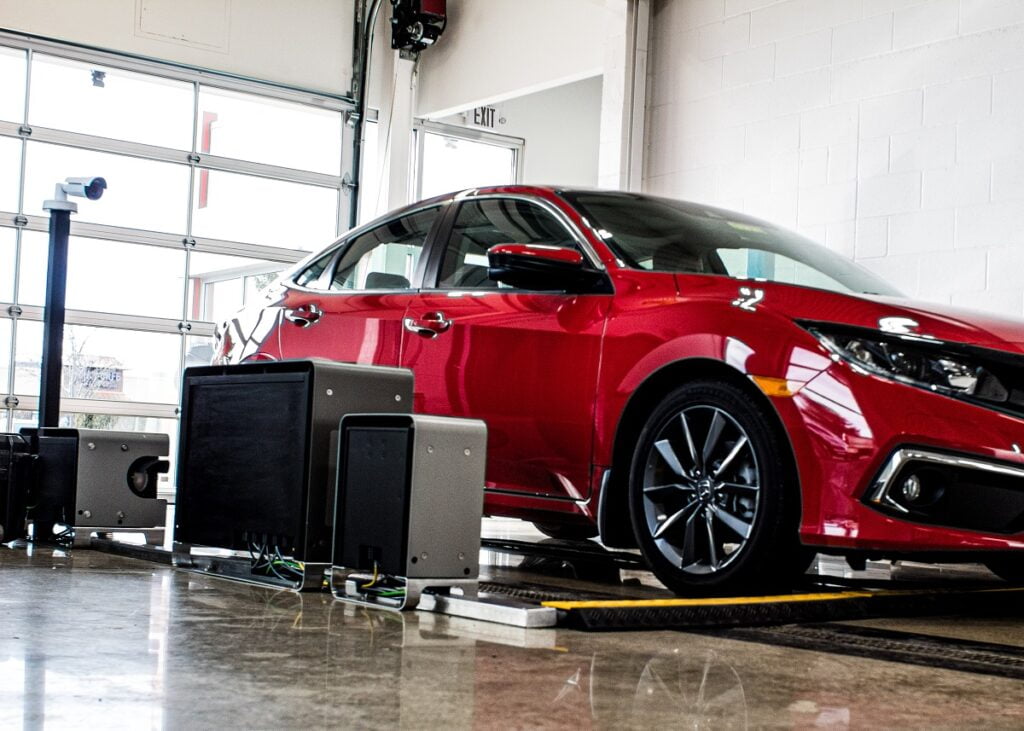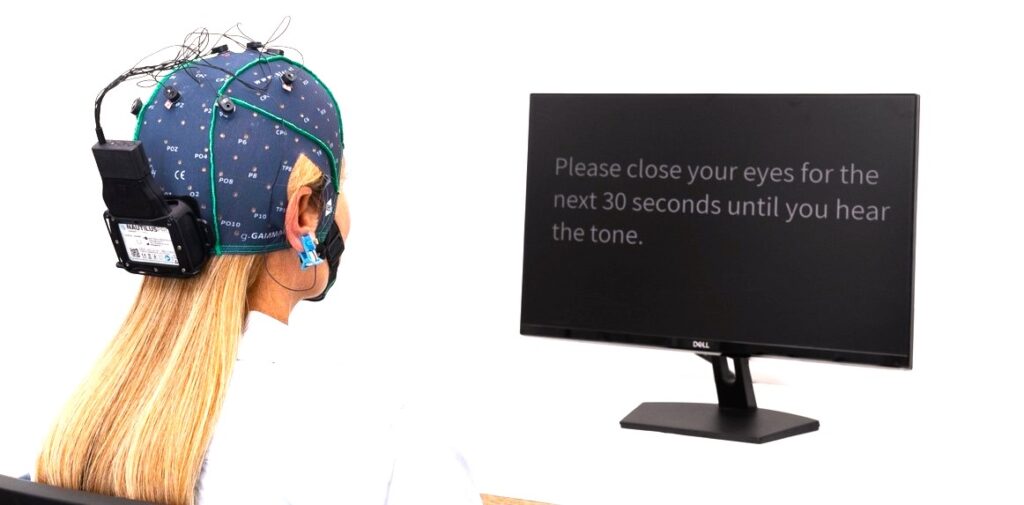US magazine Fast Company, which focuses on technological innovation, has included Israeli high-tech businesses among its prestigious annual list of the world’s most innovative companies.
From the list of companies from around the world, four are Israeli, joining the ranks of industry titans such as Google, Microsoft, Nvidia and OpenAI.
One of the four is listed in the top 50 companies, while the other three appear among the several hundred organizations singled out worldwide.
Viz.ai
Ranked at #43 on the top 50 list, Viz.ai is an eight-year-old medical imaging company that helps optimize emergency treatment using AI deep learning technology to analyze CT scans, automatically detecting and alerting physicians to early signs of life-threatening illnesses such as stroke and pulmonary embolism.
“The end result,” wrote Fast Company in its review, “is that Viz.ai saves precious minutes—39.5, according to a recent study—between the patient’s arrival and their treatment.”

Viz.ai, which has offices in Tel Aviv and San Francisco, became an Israeli unicorn in 2022, with a $1.2 billion valuation. Today, its technology is in use in over 1,500 American hospitals alone.
“This award speaks volumes about the real-world impact we have already made toward improving patient outcomes with our innovative approach to harnessing the power of artificial intelligence,” said Chris Mansi, Viz.ai co-founder and CEO.
“Our AI-powered care coordination solution is leading the charge to streamline the way patient care is delivered, provide relevant clinical insights, and inform critical decisions at the point of care.
“We are honored to be recognized as one of the World’s Most Innovative Companies by Fast Company and look forward to continuing to drive meaningful change in healthcare and life sciences by improving patient access to life-saving treatments and outcomes.”
Papaya Global
Papaya’s AI-powered payroll validation engine enables management to pay workers in local currencies regardless of where they are based, providing connectivity with existing payroll systems.
This technology allows global organizations to scale their workforce while remaining protected by Papaya’s compliance and liability.
Like Viz.ai, the Tel Aviv-based company is an Israeli unicorn, exceeding the $1 billion valuation in 2021, with a current valuation of $3.7 billion.

“Papaya Global makes it possible for companies to manage far-flung employees taking advantage of remote work’s globetrotting possibilities,” wrote Fast Company.
“[Its Workforce Wallet], in coordination with Papaya’s other solutions, has saved customers, on average, 12% in payroll costs. More than 1,000 employers have adopted the platform, including Toyota, Canva, and Shopify,” the magazine said.
“We’re very excited about the FC list. It speaks to Papaya’s vision and innovation, reshaping its industry and enabling organizations to pay anyone, anywhere, on time,” says Zvika Liblich, Chief Strategy Officer at Papaya Global, in a statement to NoCamels.
“It also speaks to the strength of the Israeli tech ecosystem, which inspires the trust of investors, partners, and customers,” he says.
Sign up for our free weekly newsletter
SubscribeUVeye
The developer of automated vehicle inspection systems, UVeye uses its vehicular scanners to provide security, automotive and dealership solutions.
Its drive-through systems can detect external and mechanical flaws and identify anomalies, modifications or foreign objects, both along the undercarriage and around the exterior of the vehicle.
Based in Tel Aviv, with offices in Germany, the UK and the US, UVeye uses AI, machine learning, and sensor technologies to create its automated vehicle inspection system for the automotive and homeland security industries.

“Using AI and machine learning, [UVeye] has a 96% accuracy rate in detecting issues like rust, tire tread warnings, broken exhausts, and leaks,” said Fast Company.
“Dealerships using the UVeye inspection system report a $25 to $30 increase in revenue per repair order, with a significant 15% increase in tire sales—thanks to the UVeyes’s tire-inspection technology,” it said.
“We are thrilled to be recognized as one of the most innovative companies in the world,” says Amir Hever, UVeye CEO and co-founder, in a comment to NoCamels.
“This is a testament to the dedication of our team at UVeye, who are constantly pushing the boundaries of technology in the automotive industry. This award further drives us to continue delivering transformative innovations to mobility, harnessing AI and computer vision to redefine the future of automotive safety, efficiency, and reliability,” Hever says.
GrayMatters Health
This Haifa-based company develops digital training therapies to help the brain regulate mental health care, with its FDA-approved Prism device – an electrodes-laden cap that fits snugly over the head – for the treatment of post-traumatic stress disorder.
Prism shows a patient’s brain activity in the amygdala, the small region of the brain associated with emotions and memory, while being exposed to different scenarios.
This helps patients with PTSD control their symptoms by better understanding what triggers that heightened activity in that part of the brain.
“Besides winning approval in the US, in 2023 Prism gained expanded investment from the European Innovation Council Fund, which had already chipped in €2.5 million to support its development and a large-scale EU study,” said Fast Company.
“Following its FDA clearance, Prism has started being used with patients in clinical settings and in clinical studies of other mental health disorders, including depression,” the magazine wrote.
“I am extremely proud to see GMH recognized among Fast Company’s esteemed roster of companies reshaping our world for the better,” said GrayMatters Health CEO and co-founder Oded Kraft.
“Introducing a new treatment modality to improve patient outcomes demands a pioneering, rigorous and proven neuroscience-based approach, which could not be accomplished without the unwavering commitment of our team,” he said.
Related posts

Editors’ & Readers’ Choice: 10 Favorite NoCamels Articles

Forward Facing: What Does The Future Hold For Israeli High-Tech?

Impact Innovation: Israeli Startups That Could Shape Our Future




Facebook comments